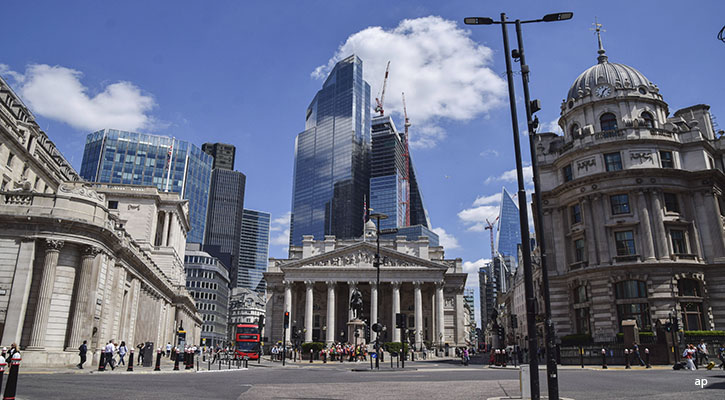
When Will the Bank of England Cut Interest Rates?
Morningstar
Money markets assign a roughly 60% probability* to the Bank of England cutting interest rates in June. But with Bank is keen to stress that the decision is still “data dependent” and not a done deal.
The most recent Bank of England meeting on May 9 was, as expected, a “no change” meeting, with interest rates held at 5.25%. But there were obvious changes since the March meeting – one more member of the 9-strong monetary policy committee had voted for a cut. While the ratio of “no change” to “cut” votes is 7-2, more members are likely to join the cohort in favour of a reduction in the coming months.
Since the Bank raised interest rates in August 2023, every subsequent press conference has featured the same question asked in different ways: when will you cut rates? And the answer was always inevitably: not yet. So the May press conference started on a similar footing with governor Andrew Bailey saying, “We are not yet at the point at which we can cut Bank rate”.
But a noticeable shift in the messaging had occurred. “Not yet … but soon” is the new guidance from the Bank. When governor Bailey said “a change in Bank rate in June is neither ruled out nor a fait accompli”, it’s the first time a specific month has been mentioned. Known for his extreme caution in choosing his words, this felt significant. “Fait accompli” is a direct echo of ECB vice-president Luis de Guindos, who told Le Monde that a June 6 rate cut by the European Central Bank is a fait accompli.
“The language and tone of today’s statement tells us that either way [the first BoE rate cut] will be sooner rather than later,” said Morningstar’s chief market strategist for Europe, Michael Field.
So the ECB is the first of the central banks to make a decision, on June 6, in a packed schedule which includes the Bank of England and the Federal Reserve.
Stock and bond markets have now adjusted to the changed narrative that, because of stronger inflation in the US, the Fed will not in fact “go first” and lead the world into monetary easing – as it led the Western world into monetary tightening.
The Bank’s Bailey responded to the suggestion that the UK is waiting on the Fed. “There’s no law that says the Fed moves first and everyone
The full article is available here. This article was published at Morningstar Economics.
Comments are closed for this article!